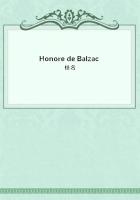"De Lawd move in er mischievous way His blunders to perform."
In the afternoon Jim Hazard and Hall dived into the breakers and swam to the outlying rocks, routing the protesting sea-lions and taking possession of their surf-battered stronghold. Billy followed the swimmers with his eyes, yearning after them so undisguisedly that Mrs. Hazard said to him:
"Why don't you stop in Carmel this winter? Jim will teach you all he knows about the surf. And he's wild to box with you. He works long hours at his desk, and he really needs exercise."
Not until sunset did the merry crowd carry their pots and pans and trove of mussels up to the road and depart. Saxon and Billy watched them disappear, on horses and behind horses, over the top of the first hill, and then descended hand in hand through the thicket to the camp. Billy threw himself on the sand and stretched out.
"I don't know when I've been so tired," he yawned. "An' there's one thing sure: I never had such a day. It's worth livin'twenty years for an' then some."
He reached out his hand to Saxon, who lay beside him.
"And, oh, I was so proud of you, Billy," she said. "I never saw you box before. I didn't know it was like that. The Iron Man was at your mercy all the time, and you kept it from being violent or terrible. Everybody could look on and enjoy--and they did, too."
"Huh, I want to say you was goin' some yourself. They just took to you. Why, honest to God, Saxon, in the singin' you was the whole show, along with the ukulele. All the women liked you, too, an' that's what counts."
It was their first social triumph, and the taste of it was sweet:
"Mr. Hall said he'd looked up the 'Story of the Files,'" Saxon recounted. "And he said mother was a true poet. He said it was astonishing the fine stock that had crossed the Plains. He told me a lot about those times and the people I didn't know. And he's read all about the fight at Little Meadow. He says he's got it in a book at home, and if we come back to Carmel he'll show it to me."
"He wants us to come back all right. D'ye know what he said to me, Saxon t He gave me a letter to some guy that's down on the government land--some poet that's holdin' down a quarter of a section--so we'll be able to stop there, which'll come in handy if the big rains catch us. An'--Oh! that's what I was drivin' at.
He said he had a little shack he lived in while the house was buildin'. The Iron Man's livin' in it now, but he's goin' away to some Catholic college to study to be a priest, an' Hall said the shack'd be ours as long as we wanted to use it. An' he said I could do what the Iron Man was doin' to make a livin'. Hall was kind of bashful when he was offerin' me work. Said it'd be only odd jobs, but that we'd make out. I could help'm plant potatoes, he said; an' he got half savage when he said I couldn't chop wood. That was his job, he said; an' you could see he was actually jealous over it."
"And Mrs. Hall said just about the same to me, Billy. Carmel wouldn't be so bad to pass the rainy season in. And then, too, you could go swimming with Mr. Hazard."
"Seems as if we could settle down wherever we've a mind to,"
Billy assented. "Carmel's the third place now that's offered.
Well, after this, no man need be afraid of makin' a go in the country."
"No good man," Saxon corrected.
"I guess you're right." Billy thought for a moment. "Just the same a dub, too, has a better chance in the country than in the city."
"Who'd have ever thought that such fine people existed?" Saxon pondered. "It's just wonderful, when you come to think of it."
"It's only what you'd expect from a rich poet that'd trip up a foot-racer at an Irish picnic," Billy exposited.
"The only crowd such a guy'd run with would be like himself, or he'd make a crowd that was. I wouldn't wonder that he'd make this crowd. Say, he's got some sister, if anybody'd ride up on a sea-lion an' ask you. She's got that Indian wrestlin' down pat, an' she's built for it. An' say, ain't his wife a beaut?"
A little longer they lay in the warm sand. It was Billy who broke the silence, and what he said seemed to proceed out of profound meditation.
"Say, Saxon, d'ye know I don't care if I never see movie pictures again."















